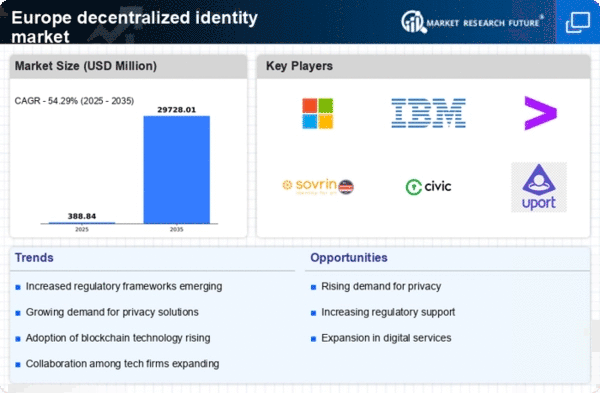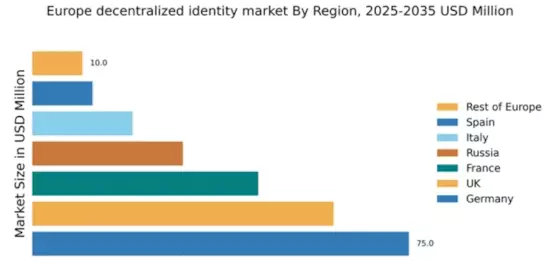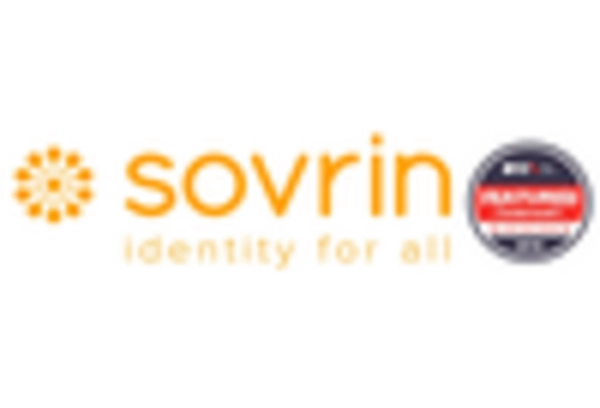Rising Demand for Data Privacy
The increasing awareness of data privacy issues among consumers in Europe is driving the decentralized identity market. As individuals become more concerned about how their personal information is used and shared, they are seeking solutions that provide greater control over their identities. This shift is reflected in a survey indicating that over 70% of Europeans prioritize data privacy when engaging with digital services. Consequently, businesses are compelled to adopt decentralized identity solutions to meet consumer expectations and comply with stringent regulations. The decentralized identity market is thus positioned to grow as organizations implement these technologies to enhance user trust and satisfaction.
Support from Government Initiatives
Government initiatives aimed at promoting digital identity solutions are playing a crucial role in shaping the decentralized identity market in Europe. Various European governments are investing in digital identity frameworks to enhance security and streamline public services. For example, the European Commission has proposed regulations to establish a European Digital Identity, which aims to facilitate secure online transactions. Such initiatives not only foster trust in digital services but also encourage the adoption of decentralized identity solutions among citizens and businesses. This supportive regulatory environment is likely to propel the growth of the decentralized identity market in the coming years.
Increased Focus on Digital Transformation
The ongoing digital transformation across various sectors in Europe is a key driver for the decentralized identity market. Organizations are increasingly adopting digital solutions to improve efficiency and customer engagement. This transformation necessitates secure and efficient identity management systems, leading to a surge in demand for decentralized identity solutions. According to recent estimates, the digital transformation market in Europe is expected to exceed €500 billion by 2025. As businesses seek to modernize their operations, the decentralized identity market is poised to benefit from this trend, providing innovative solutions that align with the evolving digital landscape.
Emergence of Decentralized Finance (DeFi) Solutions
The rise of decentralized finance (DeFi) solutions is influencing the decentralized identity market in Europe. As DeFi platforms gain traction, the need for secure and verifiable identities becomes paramount. Users require assurance that their identities are protected while engaging in financial transactions. The DeFi market in Europe is projected to grow significantly, with estimates suggesting it could reach €100 billion by 2025. This growth creates opportunities for decentralized identity solutions that can provide the necessary security and privacy for users. Consequently, the decentralized identity market is likely to expand as it aligns with the evolving needs of the DeFi ecosystem.
Technological Advancements in Identity Verification
Innovations in identity verification technologies are significantly impacting the decentralized identity market in Europe. The integration of biometrics, artificial intelligence, and machine learning into identity solutions enhances security and user experience. For instance, the market for biometric authentication is projected to reach €30 billion by 2026, indicating a robust demand for advanced verification methods. These technological advancements not only streamline the identity verification process but also reduce fraud, making decentralized identity solutions more appealing to businesses and consumers alike. As a result, the industry is likely to witness accelerated growth driven by these cutting-edge technologies.

















